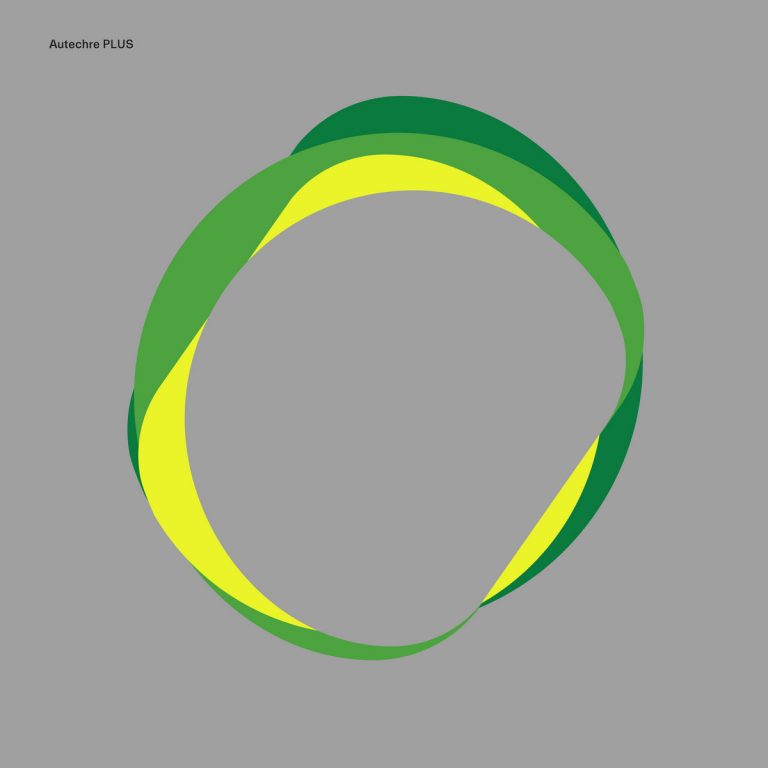Autechre announced their recently released album SIGN as their first since their 2013 album, Exai. This is technically true, but makes an important omission: there was the four-hour elseq 1–5, eight-hour NTS Sessions 1–4, and dozens of hours of unique improvised live concerts released in that interim. After this level of output, how do you return to sculpting a lone hour of music? It turns out, you don’t—you make a second album waiting to be surprise-released a mere 12 days later, and thus we have PLUS.
Autechre have always had a playful attitude with music formats—they’ve brazenly called a 150-minute release an “EP”—but if anything, that arbitrariness reveals an artistic intent. When Autechre call an hour-long release an LP and not an EP, there’s more being announced than the total minutes.
To differentiate from other pairs of releases like the 2010 couplet Oversteps and Move of Ten, which were cut from the same audio palette, SIGN and PLUS work as polar complements. Summarizing entire albums of music this abstract and fluid is a futile effort, but I expect SIGN and PLUS will cement themselves as ‘the ambient one’ and ‘the drum one’ respectively. There’s holes in this immediately, but it works as a primer on these two albums’ relation to each other.
I theorize that Autechre enjoys front-loading their albums with their harshest percussive sound design to throw new listeners into the deep end. You’re either along for the ride or you’re not. They’ve followed that model here, opening with “DekDre Scap B”, taking what might’ve been a heavy-hitting beat and squishing and stuttering it out of recognition, leaving only a menacing chord progression to hold onto. The beat settles in the following “7FM ic”, but with a tense melody like someone scrubbing through video of a missile launch. “marhide” is a truly strange track, even for Autechre, opening with an lumbering beat from an unmodified TR-808 that is later joined by a drone best described as ‘someone vacuuming on the other side of the warehouse’.
After the tension-ringing of the opening three tracks, there is release in “ecol4”, a mellow track that sounds like it had its origins from the hip-hop-infused days of 1997’s Envane, gaining some scuffs and bumps from two decades of Autechre’s style changes while retaining its DNA. Then, by its halfway point, “ecol4” passes us in our bisecting orbits and dissolves away. There’s no predicting the paths of Autechre songs: a track can morph into a genuine bop, slip to nothingness, or it can amble around contentedly like an arcade attract mode, living its life undisturbed. It’s a battle to describe this music as intentional constructions from humans Sean Booth and Rob Brown and not anthropomorphize them with moods and intentions. (Dissolution is what “ecol4” presented us, what else would “ecol4” do?)
“lux 106 mod” is a much less dynamic track in comparison, consisting of a beatless utopian bubbling melody, something like an orchestra tuning up or a jam band luxuriating in a groove transmitted to us through the Autechre dimension.
This orchestra tune-up is in preparation for Autechre playing the hits with “X4”, an album highlight that reaffirms the percussive style that separates PLUS from its partner. “X4” is a rapid, tightly-sequenced Untilted-harkening percussion-driven track filled with mechanical knocking and buzzing. An acid house bassline even appears before immediately morphing into watery babbling. And yet, like the best of Autechre’s work, instead of these sounds coming off as robotic or cold, there is a constant shifting that breathes an organic living quality to the music without sacrificing one of the most indulgently upbeat grooves Autechre has made in years. Once the beat concludes, a melodious turn more typical of SIGN surfaces in the closing chords (another mark against my dichotomous labelling).
That acid house bassline does make another return in the mischievous-sounding final track, “TM1 open”, serving as a foothold—something recognizable from this genre’s history, and more importantly, this planet—before pulling another transformation act, something more like an elusive bird in the rafters. It’d be a mean tease if it didn’t sound so cool.
The most surprising moments in new Autechre albums are often these moments of genre lucidity. Really, every album has had them, but there’s the sense of an approaching return to normalcy, in spite of the impossibility to imagine what that’d sound like. Maybe these moments are for Autechre to flex, ‘yeah, we can still play your game.’ Maybe it’s a punchline, surprising the listener with the familiar after so much time spent outside the Kuiper belt. Maybe it’s to evoke a musical version of the Annihilation alien, a consciousness revealing its foreign mind through its warped mimicry of styles and melodies we know.
If this sounds lofty, that’s part of the Autechre experience. Autechre has one of the most understanding fanbases to people who viscerally don’t get it. It’s weird music! Rob and Sean have tinkered with all the expected sounds, arcs, and payoffs of electronic music for over two decades, but if there’s one area an Autechre fan will still go to bat against, it’s that this music is any way cold or mechanical. It doesn’t take a lot to break rules, but Autechre have dedicated themselves to making rule-breaking sound so captivating and evocative. Not anyone can make themselves sound like a secret front for an alien consciousness.
SIGN was probably the wise choice to release (and hear) first, with its stronger unified mood and overpowering alien beauty of tracks like “M4 Lema” and “Metaz form8”. In comparison, PLUS is a more flagrantly weird collection of odds and ends, but perhaps a better microcosm of the flagrantly weird band that is Autechre. The title “PLUS” probably best summarizes its character: here’s some more Autechre. Released as a surprise gift, no less. And that’s a good thing: each album may offer a different flavor, but there’s only one band that can channel this music.

